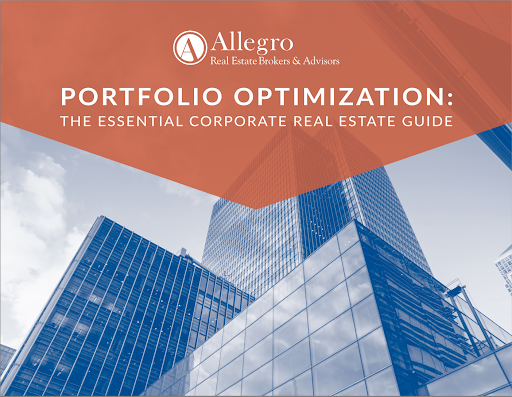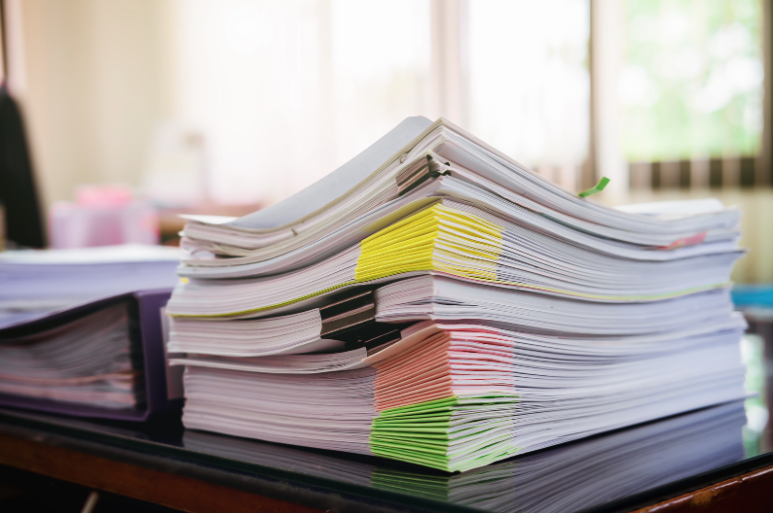When a tenant signs a corporate lease, an estoppel certificate provision is typically mentioned within.
An estoppel certificate is an overarching document signed by a tenant that states their lease terms. It’s usually a one-page document that sums up the terms of a tenant’s lease agreement.
While it serves a purpose for both landlords and tenants, it’s important for tenants to understand what an estoppel certificate is and the steps to take before signing one.
What Is an Estoppel Certificate in a Commercial Lease?
An estoppel is a legally binding document that details the most important parts of a tenant’s lease terms. Estoppel certificates are commonly used by landlords who need to share building information with lenders, investors, or potential buyers. They can address the following:
- Lease dates (when it started, expiration date, renewal date).
- Monthly rent price and any outstanding rent concessions not stated in the lease.
- Whether the landlord or tenant is in default.
- Both parties’ contact information.
- Deposit and interest details.
- Prior lease modifications or amendments.
- Lease termination rights.
- Lease breaches.
- Subleases.
- Claims against the landlord.
For lenders and investors, the certificate proves cash flow. For buyers, it provides the status of some or all active leases and any claims against the landlord.
Once signed, a tenant cannot change the terms in the estoppel, which solidifies that information for interested parties. However, if the estoppel is inaccurate with the lease because of a mistake, the lease terms will typically override it.
What Should I Do When I Receive an Estoppel Certificate?
Landlords can request tenants sign an estoppel certificate at any time. Given the importance of this document, tenants should not sign an estoppel certificate without first reviewing it with legal counsel and a trusted real estate advisor.
When you receive it, first check that the estoppel certificate provided by your landlord matches the one attached to your lease. Most, but not all, leases will include an estoppel template. Next, confirm the deadline for signing it by checking the provision in your lease or asking your landlord.
Review the estoppel in depth to confirm everything is correct. You can compare the estoppel document with your lease to confirm details. If anything has changed with your lease since it was signed, the estoppel will need to include that new information. This includes any agreements you made with your landlord over phone or email.
Depending on the size and complexity of your lease, expert attorneys and legal counsel can be crucial in confirming all of the details in the estoppel align with your lease terms. They can also ensure your landlord isn’t inadvertently charging or overcharging you for an expense not permitted under the lease. If found later, your landlord may use the estoppel certificate as proof to not pay you back.
Keep in mind that tenants cannot renegotiate their lease terms through an estoppel.
Do I Have To Sign the Estoppel Certificate?
Most tenants agree in their leases that they will sign an estoppel if requested by their landlords. However, many still opt to not sign one. If you choose the latter, you may face several consequences.
One of the most obvious is that you default on your lease agreement, resulting in its potential termination. In other cases, if you don’t sign the estoppel within the time period specified in your lease, the following may take place:
- Your landlord could sign it for you as your agent, which means any incorrect terms within the estoppel will be solidified.
- You could receive a penalty fee.
- Your failure to sign could be considered an admission that everything within the estoppel is correct.
- You could become liable for damages incurred by your landlord.
Of course, if the estoppel is inaccurate, you can make corrections to it and submit it to your landlord to update it. Overall, as long as you understand what the estoppel is and have done your due diligence in regard to reviewing it, you shouldn’t have anything to worry about in regard to your lease terms.
Review Your Estoppel Certificate With a Commercial Real Estate Expert
Should you sign your landlord’s estoppel certificate? Is it time to negotiate your lease before doing so? Contact us today to discuss your options. Our team of experts is ready to help you make the best educated decision for your real estate needs.








